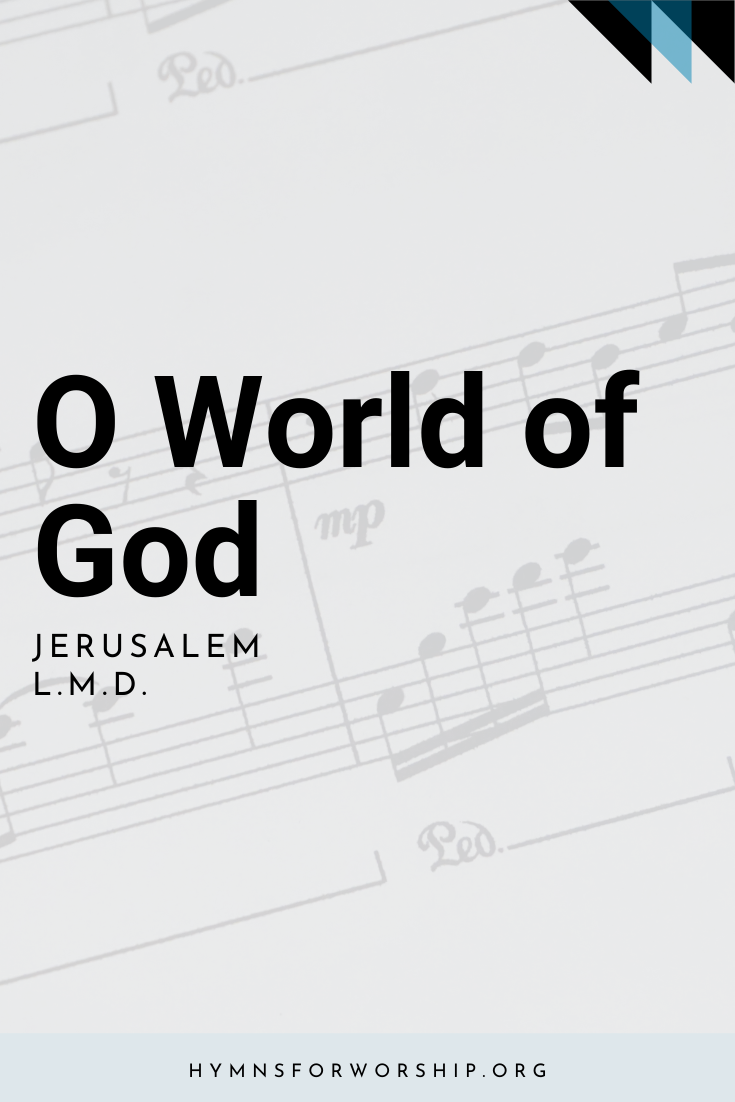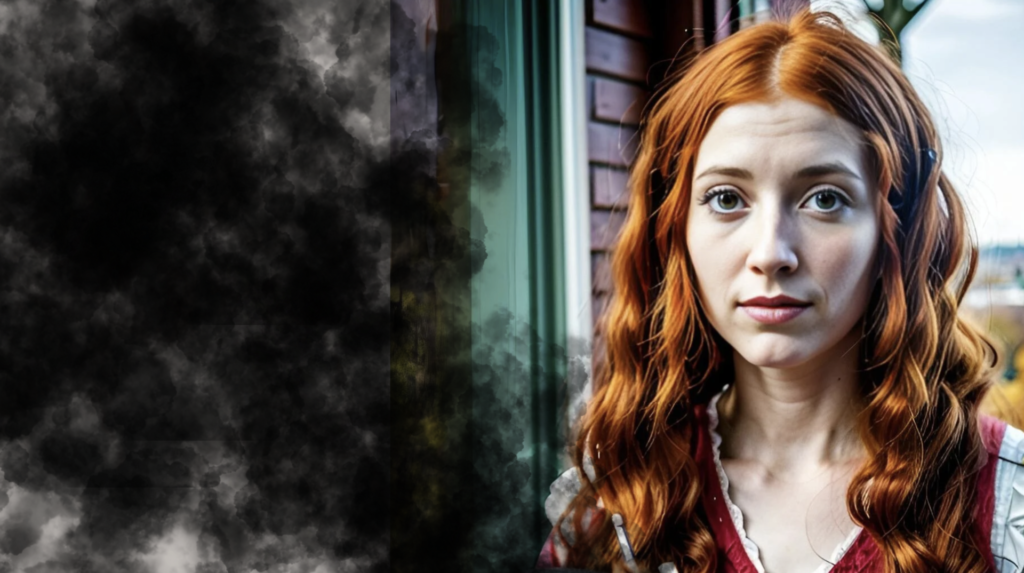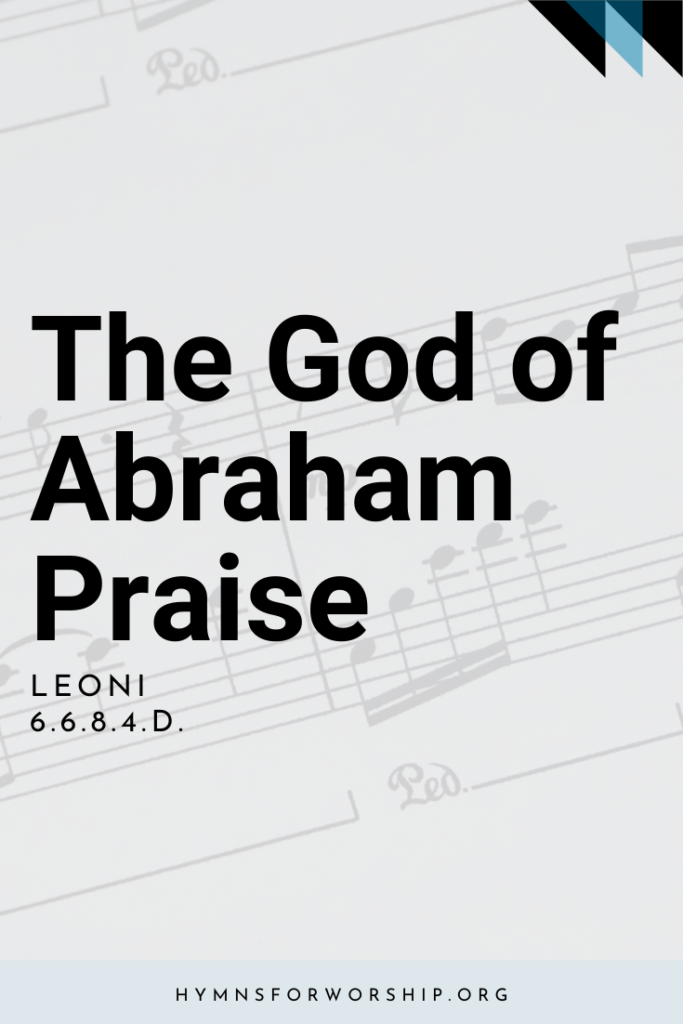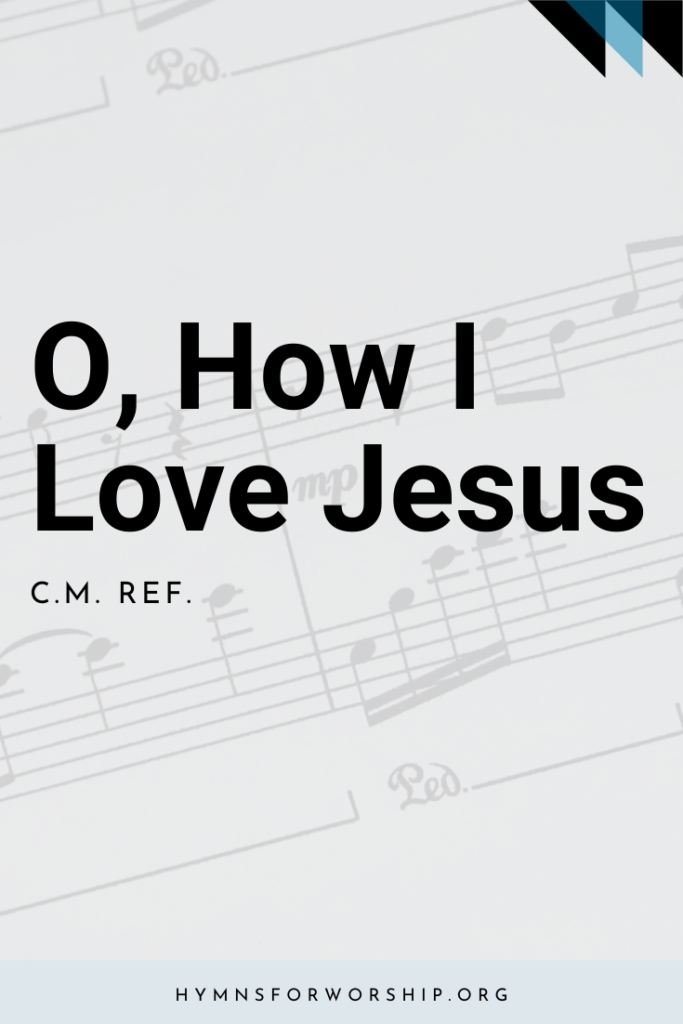GOD THE FATHER >> Love of God
SDAH 80
O world of God, so vast and strange,
Profound and wonderful and fair,
Beyond the utmost reach of thought,
But not beyond a Father’s care!
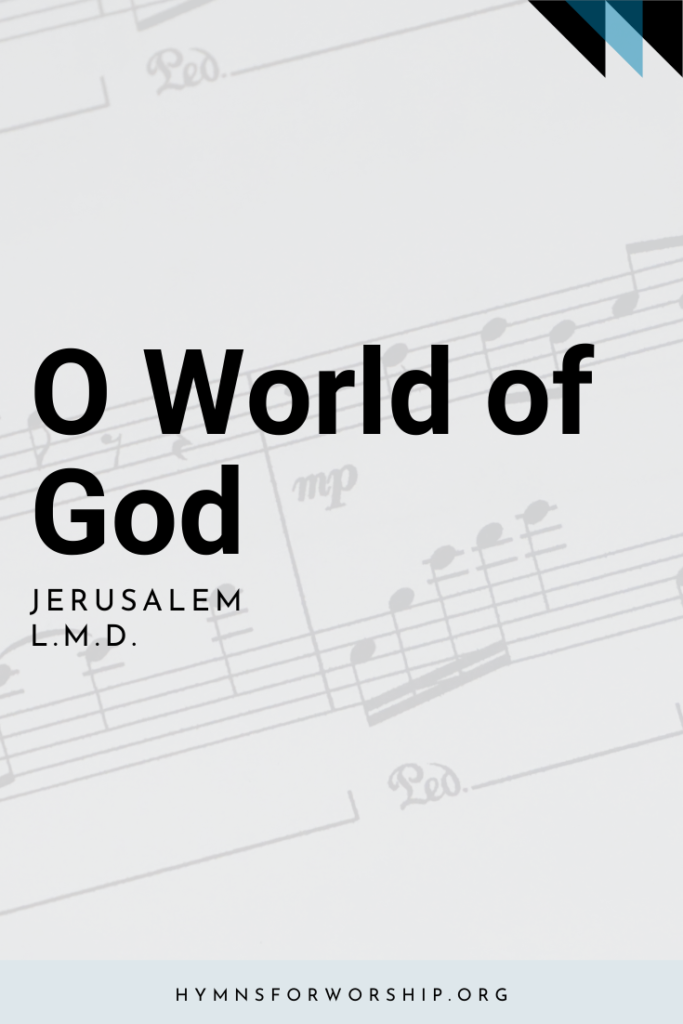

Text
1
O world of God, so vast and strange,
Profound and wonderful and fair,
Beyond the utmost reach of thought,
But not beyond a Father’s care!
We are not strangers on this earth
Whirling amid the suns of space;
We are God’s children, this our home,
With those of every clime and race.
2
O world of man where life is lived,
So strangely mingling joy and pain,
So full of evil and of good,
So needful that the god shall reign!
It is this world that God has loved,
And goodness was its Maker’s plan,
The promise of God’s triumph is
His coming in a Son of Man.
3
O world of time’s far-stretching years!
There was a day when time stood still,
A central moment when there rose
A cross upon a cruel hill;
In pain and death love’s power was seen,
The mystery of time revealed,
The wisdom of the ways of God,
The grace through which man’s hurt is healed.

Hymn Info
Biblical Reference
(b) John 3:16
Author
Robert Balgarnie Young Scott (1899-1987)
Copyright
Words copyright by R.B.Y. Scott. Music copyright by J. Curwen & Sons. Used by permission of G. Schirmer, Inc., USA agents.
Hymn Tune
JERUSALEM
Metrical Number
L.M.D.
Composer
Charles H.H. Parry (1848-1918)
Arranger
Arr. by Gordon P.S. Jacob (1895-1984)
Theme
LOVE OF GOD
Hymn Score
Piano Accompaniment
Notes
Get to know the hymns a little deeper with the SDA Hymnal Companion. Use our song leader’s notes to engage your congregation in singing with understanding. Even better, involve kids in learning this hymn with our homeschooling materials.
In a letter dated August 23, 1985, Rev. R.B.Y. Scott, author of this text, says, “Yes, there was an unusual circumstance connected with the hymn lyric ‘O World of God.’The committee on the 1971 Hymn Book wanted to use Parry’s tune JERUSALEM, but William Blake’s (1757-1827) words to which it was set were unsuitable. They asked me to try my hand at a lyric in this meter. I did so, and it was accepted and printed.”
Robert Balgarnie Young Scott was born July 16, 1899, and his early education was in Toronto, Canada. At the University of Toronto he earned the B.A. in 1922, M.A. in 1924, and Ph.D. in 1928. Union College of Toronto conferred the B.D. and an honorary D.D. on him. He was professor of Old Testament literature at Union College of British Columbia and Union Theological College of Montreal; he was on the faculty of divinity, and for two years he was dean at McGill University; professor of religion, chairman, and professor emeritus of Princeton University. During World War I, he served as a wireless operator and chaplain in the Royal Air Force.
The Province of Quebec awarded him the Literary Prize in 1946; he won the Canadian Council of Churches Prize for a centennial hymn in 1967 and is the author of 10 hymns published in more than 30 hymnbooks internationally. He has authored a number of theological books, contributed to reference works, and published magazine articles. A world-class scholar, he is recognized by these learned organizations: fellow, Royal Society of Canada; fellow, American Learned Societies; president, 1960, Society of Biblical Literature; secretary-treasurer, 1932-1939, president, 1972, Canadian Society for Biblical Studies; Society of Old Testament Study (United Kingdom), 1948-1974; International Congress of Old Testament Studies, 1952-1965. Now retired, he lived in Toronto and is almost blind.
Reading and singing these stirring words, he is led to feel that here is a man who, through his lifelong study of the Bible, has developed a strong faith in God’s eternal, loving purpose for mankind. “A central moment when there rose a cross upon a cruel hill” and “The promise of God’s triumph is His coming in a Son of Man” reveal the ultimate solution for our world “of man where life is lived, so strangely mingling joy and pain, so full of evil.”
The tune JERUSALEM, by Charles H. H. Parry (1848-1918; see SDAH 20), the original of which appears in Songs of Praise ,1931, is for unison voices with organ accompaniment. The arrangement here printed by Gordon Jacob is somewhat simplified, but still maintains the power and dignity of this tune about which Erik Routley says, “Parry’s supreme congregation achievements was, obviously, JERUSALEM… written for a poem that is not in any sense a hymn. This is one of the half dozen tunes which every Englishman knows, and in a ruggedly sentimental fashion, loves. It has been referred to as the English national anthem (there is no other), and if it is to be included in the ranks of national songs, then it is the finest piece of music, by a long way, to have that honor. But looked at as a piece of melodic engineering, it is flawless in its judgement of what ordinary people are glad to sing… All the way it enables people to make great music, as if that were the most natural thing in the world.”
Gordon Percival Septimus Jacob was born July 5, 1895, at Norwood, London, England. He enlisted in the armed forces at age 19 and was a prisoner of war from 1917 to 1918. At the Royal College of Music he studied under Charles V. Stanford (see SDAH 32), Herbert Howells (see SDAH 5), and Sir Adrian Boult. In 1926 he was appointed professor fo composition at the same school. A brilliant teacher, he is known for his book Orchestral Technique, 1931, and for orchestral and vocal works. He lives in retirement at Saffron Waldon, Essex.
These stanzas of “Jerusalem,” first appearing in the preface to William Blake’s Milton, were the inspiration for Parry’s tune:
And did those feet in ancient time
Walk upon England’s mountains green?
And was the holy Lamb of God
On England’s pleasant pastures seen?
And did the Countenance Divine
Shine forth upon our clouded hills?
And was Jerusalem builded here
Among those dark Satanic Mills?
Bring me my bow of burning gold!
Bring me my arrows of desire!
Bring me my spear! Oh clouds, unfold!
Bring me my chariot of fire!
I will not cease from mental fight
Nor shall my sword sleep in my hand,
Till we have built Jerusalem
In England’s green and pleasant land.
It was first sung at Royal Albert Hall in a service of thanksgiving in the middle of World War II, when woman’s suffrage had just passed in the House of Commons. It has been made famous in America by the film Chariots of Fire, at the end of which it is sung by choir and congregation in a magnificent cathedral.
Another great poet, Robert Bridges (see SDAH 5), suggested that Parry write “suitable simple music to Blake’s stanza— music that an audience could take up and join in.” He did so, and gave the manuscript to Sir Walford Davies (see SDAH 641) with “Here’s a tune for you, old chap. Do what you like with it.” Davies wrote a letter in 1927 to the London Times about it: “Sir Hubert Parry gave me the manuscript of this setting o Blake’s ‘Jerusalem’ one memorable morning in 1916… We looked at it long together in his room at the Royal College of Music, and I recall vividly his unwonted happiness over it… I copyrighted it in the composer’s name and published it in 1916. We needed it for the men [soldiers] at that time. It is indeed good to know that Dame Millicent Fawcett needed and had asked for it for the women too. I know Dr. Bridges specifically wanted every one of us to sing it, and this is happily coming true.”

